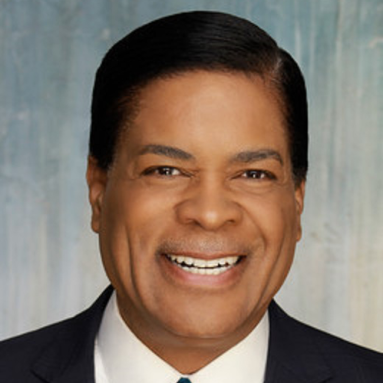Harry Hunter
Associate Teaching Professor
An interdisciplinary expert specializing in the fields of social work and industrial-organizational psychology, with a focus on advancing workforce well-being through data-driven decision-making. This expertise encompasses inclusive management practices and the development of resilient organizations that achieve client-centered, mission-driven outcomes.
Harry Hunter
Associate Teaching Professor
An interdisciplinary expert specializing in the fields of social work and industrial-organizational psychology, with a focus on advancing workforce well-being through data-driven decision-making. This expertise encompasses inclusive management practices and the development of resilient organizations that achieve client-centered, mission-driven outcomes.
Biography
Harry Hunter is an associate teaching professor at the USC Suzanne Dworak-Peck School of Social Work, where he teaches in both the Master of Social Work (MSW) and Doctor of Social Work (DSW) programs. With over 25 years of leadership experience in nonprofit, government and health system organizations, he combines his expertise in social work, industrial/organizational psychology and business administration to prepare students for advanced, evidence-informed practice. His teaching emphasizes a collaborative learning environment in which students apply evidence-based social work practices, integrate theory and ethics, and engage in critical self-reflection to support their professional growth.
Hunter holds a DSW from Tulane University, where he received the DSW Student Award for Outstanding Achievement. He also earned a PhD in Psychology with a specialization in Industrial-Organizational Psychology from Capella University, an MSW from the University of Michigan and an MBA from Lawrence Technological University. Additionally, he completed undergraduate degrees in social work and mental health at Armstrong State College (now Georgia Southern University). In 2024, he was elected to the alumni board of the University of Michigan School of Social Work.
His research focuses on workforce mental health, organizational culture and leadership practices that support employee well-being. Hunter's scholarship examines the underdiagnosis of depression among men, barriers to workplace mental health screening, social isolation among older adults and intergenerational approaches to community well-being. His work integrates clinical practice, organizational science and global social work perspectives to promote more inclusive environments across diverse populations.
In 2018, he completed postdoctoral training at L’École Pratique de Service Social (EPSS) in Paris, France, presenting "More Than Meals: An International Innovative Social Impact Project for France," which was subsequently published in Health & Social Work. This project addressed social exclusion of older adults and promoted intergenerational engagement strategies. In the spring of 2025, he participated in a study abroad program in southern India focused on global social work and mental health, where he engaged with leading institutions and attended the Social Workers Perspectives — Actions, Research, Knowledge & Services International Conference at St. Joseph’s University in Bengaluru.
Hunter has contributed extensively to organizational and community development. From 2002 to 2025, he served as a peer reviewer for the Council on Accreditation (COA). Additionally, from 2014 to 2017, he served on the Citizens District Council in Detroit, where he supported the planning and development of the historic Brush Park neighborhood. He received the Spirit of Detroit Award for “exceptional achievement, outstanding leadership and dedication to improving the quality of life” and is a member of the Society for Industrial and Organizational Psychology.
Education
Capella University
PhD
Tulane University
DSW
University of Michigan
MSW
Lawrence Technological University
MBA
Georgia Southern University
BA in Social Work
Georgia Southern University
AS in Mental Health Work
Area of Expertise
- Interdisciplinary & Global Social Work Practice (Social Work, I/O Psychology, Business Administration)
- Evidence-Based Workforce Mental Health & Organizational Well-Being
- Strategic Leadership & Change in Human Services
- Employee Assistance Programs & Behavioral Health
- Nonprofit Management & Community Impact
Industry Experience
- Leadership in Nonprofit & Human Services
- Administration in Government & Public Sector
- Behavioral Health Leadership in Health Systems & HMOs
- Higher Education Expertise
- Global and Community-Based Practice
Accomplishments
Student Award for Outstanding Achievement
Tulane University, Doctorate of Social Work, May 2025
Citizen District Council, City of Detroit
Elected member in 2014 for three-year term. Council functions as an advisory board for designated urban renewal areas of the city.
Volunteer of the Month
Council on Accreditation, January 2013
Spirit of Detroit Award
City of Detroit, for exceptional achievement, outstanding leadership and dedication to improving the quality of life in Detroit.
Certificate of Tribute
Presented by Michigan Gov. Jennifer Granholm for "outstanding contributions in conjunction with the 2007 State Employees Charitable Campaign."
Articles & Publications
Hunter, H., Savani, S. (2025) Closing the Health Gap: Addressing the Underdiagnosis of Depression among Men. Health & Social Work, hlaf030. https://doi.org/10.1093/hsw/hlaf030
Hunter, H., Ferreira, R. J., & Prochaska, J. M. (2025). Applying expectancy theory of motivation and transtheoretical model of behavior change to mitigate employee resistance to organizational change in nonprofit organizations: A theoretical framework. Journal of Human Behavior in the Social Environment, 1–17. https://doi.org/10.1080/10911359.2025.2548916
Hunter Jr., H. (2024). Improving participation in depression risk screening for working populations: Qualitative results from interviews with six EAP directors. Best Practices in Mental Health, 20(1), 32-49. DOI: https://doi.org/10.70256/621265iopjdr
Hunter, H. (2023) The transtheoretical model of behavior change: Implications for social work practice. Journal of Human Behavior in the Social Environment. Advanced online publication.
DOI: 10.1080/10911359.2023.2253307
Hunter, H., James, J., Gent, M. (2023). Eradicate social isolation. In Maiden, R.P., & Weiss, E.L. (1st ed). Social Work and field education (pp. 115-133). Routledge. https://doi.org/10.4324/9781003308263
Hunter, H., O’Leary, V., Denes, S., Ginn, L. D. (2020). More Than Meals: An International Innovative Social Impact Project for France. Health & Social Work, 45(1), 59-61. https://doi.org/10.1093/hsw/hlz032
Hunter, H. (2014). What is effective leadership? Journal of Employee Assistance, 44(4), 14-15, 28. http://hdl.handle.net/10713/20174
Hunter, H. (2011). EAPs and primary care physicians. EA Report Brown Bagger, 14(12), 1-3. 2011_12_eaps_primary_care.pdf
